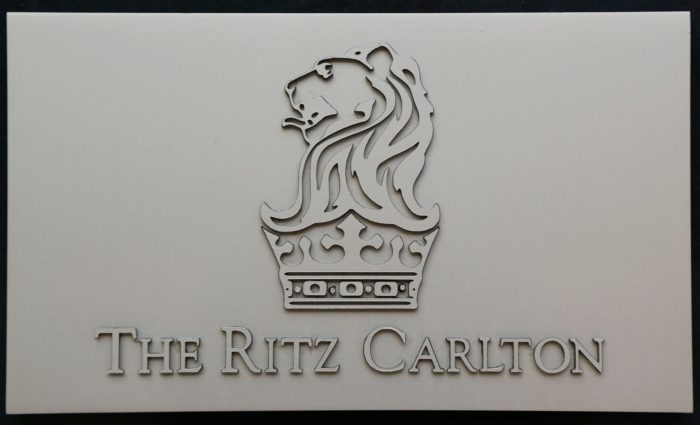Top Class Actions’s website and social media posts use affiliate links. If you make a purchase using such links, we may receive a commission, but it will not result in any additional charges to you. Please review our Affiliate Link Disclosure for more information.
According to a recent class action lawsuit, employees of the Ritz-Carlton Hotel in Chicago had their privacy rights violated with fingerprint time clocks.
Mark Mendoza says that he worked for the Ritz-Carlton in Chicago as an hourly employee where he was required to clock in and out of work with a biometric time clock that used fingerprint scans. According to Mendoza, Ritz-Carlton stored employee biometric information in the form of “templates” which include fingerprint scans.
“The biometric system then compared the reference templates against each subsequent fingerprint scan to identify the worker scanning in and associate the proper timekeeping information,” Mendoza explains. “Defendants’ payroll provider accessed the information collected through the biometric system.”
Although biometric time clocks are nothing new, Mendoza argues that he and other employees had their privacy rights violated by the Ritz-Carlton’s system.
Mendoza says that Ritz-Carlton violates privacy rights under Illinois’ Biometric Information Privacy Act (BIPA). The BIPA aims to protect Illinois residents from having their biometric information compromised. Unlike other personal identifiers, biometrics such as fingerprints and facial scans cannot be changed if this data is stolen by hackers.
As a result, Illinois legislators established BIPA as a way to require special protections for this data. Under BIPA, companies are required to disclose the collection and storage of biometrics and must provide information about how long their information is stored.
Despite these requirements, Ritz-Carlton of Chicago has allegedly failed to tell their employees how it used their sensitive biometric data and how long they kept this data. When the company shared this information with their payroll provider, employees were reportedly not told of this disclosure. Even worse, employees like Mendoza gave no consent to have their biometric information collected, stored, and shared, the class action lawsuit argues.
“Prior to collecting plaintiffs’ and the Class’s biometric identifiers and information, Defendants did not inform plaintiff and the Class in writing that their biometrics were being collected, stored, and used,” the Ritz-Carlton privacy rights class action lawsuit contends.

On behalf of himself and the proposed Class Members, Mendoza seeks statutory damages of $1,000 for every negligent violation and $5,000 for each willful violation of BIPA.
The privacy rights class action lawsuit also seeks injunctive relief, interest, court costs, and attorneys’ fees.
In Illinois, state and federal appeals court are currently reviewing questions surrounding BIPA which may impact Mendoza’s claim under the state law.
For example, the Illinois Appellate Court is scheduled to review questions about the law’s five-year statutes of limitations. This time period is derived from Illinois’ “catch-all” statute of limitations. Since BIPA doesn’t include its own specific statute of limitations, it is unclear whether the law should be governed by the five-year limitations period or if a shorter limitation period should be used similar to that seen in other privacy and personal injury claims.
Similarly, the Seventh Circuit Court of Appeals will discuss whether a person’s privacy rights under BIPA are violated each time that their biometrics are collected or if BIPA violations only occur during the first time. Issues surrounding BIPA’s applications to employee claims will also be reviewed by the Illinois Supreme Court.
Depending on the results of these hearings, Mendoza’s claims could be assisted or hindered.
Did you work at the Ritz-Carlton in Chicago? Are you worried that your privacy rights were violated? Share your experiences in the comment section below.
Mendoza and the proposed Class are represented by Thomas Kayes of the Law Offices of Thomas R. Kayes LLC, Frank Castiglione and Kasif Khowaja of The Khowaja Law Firm LLC and J. Dominick Larry of Nick Larry Law LLC.
The Ritz-Carlton Privacy Rights Class Action Lawsuit is Mark Mendoza v. The Ritz-Carlton of Chicago Inc., et al., Case No. 2020-CH-07303, in the Circuit Court of Cook County, Illinois.
Read About More Class Action Lawsuits & Class Action Settlements:
















2 thoughts onRitz-Carlton Class Action Lawsuit Says Hotel Violates Employee Privacy Rights
Add me
Add me